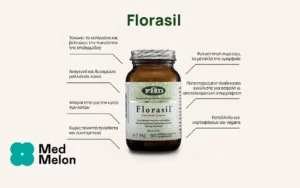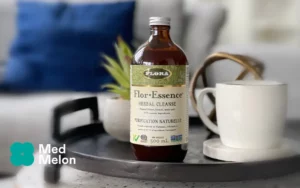Scientific Names of Fennel Seed:
Foeniculum vulgare MILL. [Fam. Umbelliferae]
Forms:
Dried whole seed; seed extract (liquid or dry)
Traditional Usage:
– Amenorrhea
– Antimicrobial
– Antioxidant
– Body Odor
– Breast Enlargement
– Breastfeeding Problems
– Breathing Problems
– Catarrh (Mucous) of the throat
– Coughs
– Cramps (stomach)
– Dyspepsia
– Eyesight Problems (externally)
– Flatulence
– Heartburn
– Indigestion
– Increasing Libido (in women)
– Increasing Milk (galactagogue)
– Multiple Sclerosis
– Vascular Disorders
Overview:
Fennel, Foeniculum vulgare MILL., belongs to the family Umbelliferae. Fennel seed is commonly used as a food and spice around the world, especially in India where it is recognized for its healing powers. The seed has many medicinal virtues and was used traditionally for alleviating digestive complaints, for stimulating milk flow in lactating mothers, externally as an eye lotion (decoction) and in functional visual disorders. A handful of fennel seeds have been used to treat heartburn for thousands of years. Fennel seed is recommended by many herbalists to prevent hormonal imbalances and treat menstrual difficulties (Amenorrhea). The German Pharmacopoeia recognizes fennel seed as a source of essential oils and bitters that aid digestion and treat dyspepsia, mild stomach cramps, bloating and flatulence. The seed is also recommended as a taste enhancer, to counteract the mild cramps accompanying the use of laxatives and to dissolve mucous in the upper respiratory tract. Fennel seed contains the compound creosol and up to 8,800 ppm of alpha-pinene, compounds that help to loosen bronchial secretions. The seed is also considered to be anti-microbial and antiseptic. Modern herbalists recommend fennel seed for preventing vascular disease and note that the seed, as with other plants in the carrot family, contains 15 compounds that act much like calcium channel blockers. Dr. James Duke, author of The Green Pharmacy, states that vegetarians who eat lots of carrots may have lower levels of vascular disease partly due to these compounds, which are more highly concentrated in fennel seed. Fennel seed also contains compounds that have been shown to coat the myelin sheath around nerve cells and aid electrical impulses to cross synapses and therefore may be beneficial for those suffering from multiple sclerosis. The essential oil of fennel seed also has strong antioxidant activity, superior to BHT + BHA.
Active Ingredients:
Fennel Seed contains: Approximately 2-6% essential oil comprising up to 50-70% of a sweet compound called trans-anethole and up to 20% of a bitter compound called (+) -fenchone. The oil also contains methylchavicol, anisaldehyde, and some terpenoid hydrocarbons including alpha pinene, alpha phellandrene and limonene as principal components. The seeds also contain a fixed oil, organic acids, flavonoids, tannins and polysaccharides. The Nutrient Units Value per 100 grams of fennel seed (proximates) are: Water 8.8g; Protein 15.8g; Total lipid (fat) 14.9g; Carbohydrate, by difference 52.3g; Fiber, total dietary 39.8g; Ash 8.2g. Minerals: Calcium 1196mg; Iron 18.5mg; Magnesium, 385mg; Phosphorus, 487mg; Potassium, 1694mg; Sodium, 88mg; Zinc, 3.7mg; Copper, 1.1mg; Manganese, 6.5mg. Vitamins: Vitamin C, total ascorbic acid 21.0mg; Niacin 6.0mg; Vitamin A, 135 IU; Vitamin A, RE 14mcg_RE. Lipids: Fatty acids, total saturated 0.5g; Fatty acids, total monounsaturated 9.9g; Fatty acids, total polyunsaturated 1.7g; Phytosterols 66mg. Amino acids: Tryptophan 0.2g; Threonine 0.6g; Isoleucine 0.7g; Leucine 1.0g; Lysine 0.8g; Methionine 0.3g; Cystine 0.2g; Phenylalanine 0.6g; Tyrosine 0.4g; Valine 0.9g; Arginine 0.7g; Histidine 0.3g; Alanine 0.8g; Aspartic acid 1.8g; Glutamic acid 3.0g; Glycine 1.1g; Proline 0.9g; Serine 0.9g.
Suggested Amount:
The daily dose of fennel seed is 5-7g of the dried seed or 10-20g of fennel syrup or honey or 5-7.5g of compound fennel tincture, or preparations taken correspondingly. To prepare an infusion: Pour approximately 150ml of boiling water over 1-3 teaspoonfuls of crushed fennel seed and after about 10 minutes pass through a tea strainer. Unless otherwise prescribed, a moderately warm cup of the freshly prepared infusion is drunk between meals two to four times a day. For infants and young children, the infusion may be used to dilute their milk.
Drug Interactions:
None known
Contraindications:
Highly concentrated fennel seed preparations are contraindicated for women during pregnancy due to estrogenic effects.
Side Effects:
In rare cases, allergic reactions have been noted, of the skin and respiratory tract.
References:
Duke, J. 1997: The Green Pharmacy, The Ultimate Compendium of Natural Remedies from the World’s Foremost Authority on Healing and Herbs. pp. 53; 55-56; 146; 290-91; 299-300; 335; 453-454. Rodale Press.
Farag RS, el-Khawas KH. 1998. Influence of gamma-irradiation and microwaves on the antioxidant property of some essential oils. Int J Food Sci Nutr 1998 Mar; 49(2): 109-15.
Malini T, Vanithakumari G, Megala N, Anusya S, Devi K, Elango V. 1985. Effect of Foeniculum vulgare Mill. seed extract on the genital organs of male and female rats. Indian J Physiol Pharmacol. 29(1): 21-6.
Schwartz HJ, Jones RT, Rojas AR, Squillace DL, Yunginger JW. 1997. Occupational allergic rhinoconjunctivitis and asthma due to fennel seed. Ann Allergy Asthma Immunol. 78(1): 37-40.
Wichtl M (ed). 1994. Foeniculi fructus – Fennel (English translation by Norman Grainger Bisset). In Herbal Drugs and Phyto-pharmaceuticals. CRC Press, Stuttgart, pp. 200-202.




